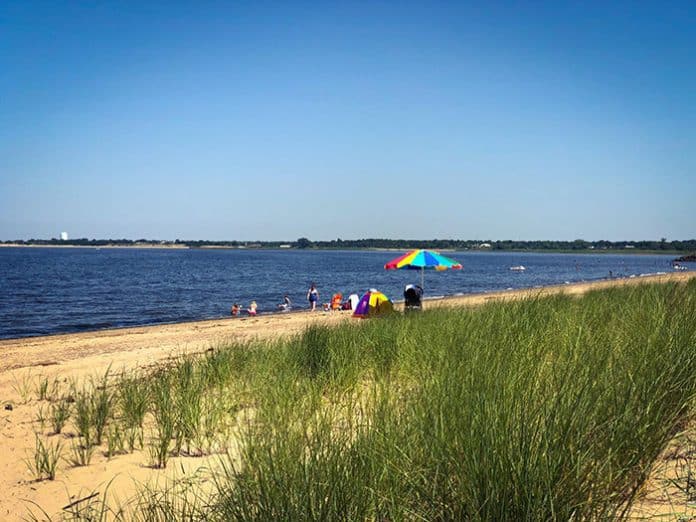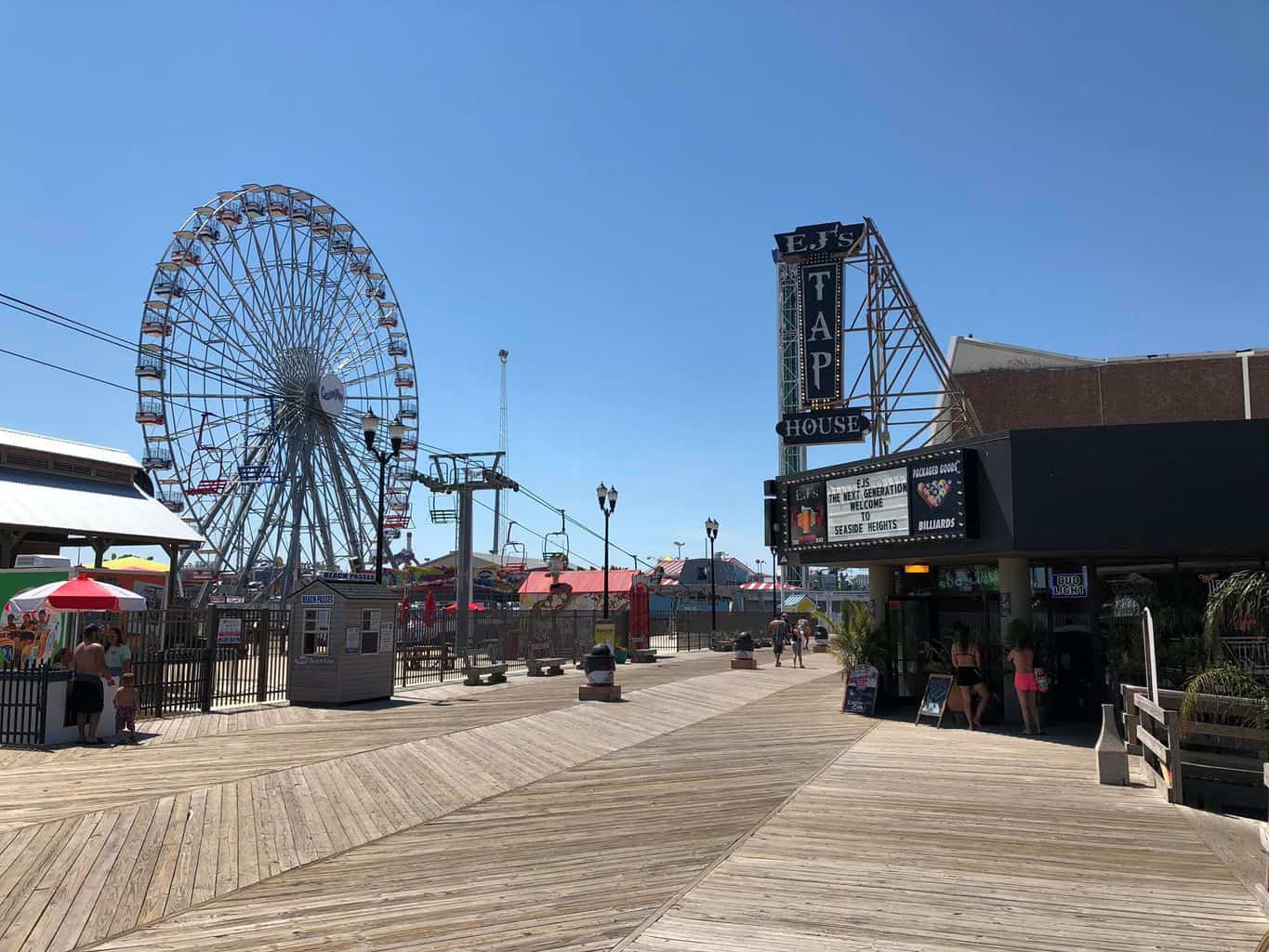
NEW JERSEY – New Jersey can expect this heat wave to last until at least Wednesday, with temperatures staying in the mid-to-upper 90s inland and hovering around 90 at the shore. The heat index – the combination of heat and humidity that makes the temperature feel hotter than it is – is ranging from 100 to 105 or higher throughout the state.
Monmouth and Ocean counties will remain under a heat advisory through at least 4 p.m. and likely through Wednesday, Alex Staarman of the National Weather Service Philadelphia/Mount Holly office said Monday morning. A heat advisory means the heat index will be 100-104 degrees over multiple days, which is early in the season.
“We do get these spells, but they’re not as common as areas further south,” Staarman said. “It looks like we’re going to be in a downward trend in temperatures by Wednesday in the mid-lower 90s. We don’t expect to see the higher temperatures after Wednesday.”
An excessive heat warning has been issued for areas west of Monmouth and Ocean counties, where the heat index will soar above 105 degrees.
Staarman explained that an upper ridge of high pressure moved over the Mid-Atlantic and East coast from the Midwest and Plains. A southerly flow is also pumping deep tropical moisture northward. New Jersey is feeling an unseasonably hot and humid weather.
His office is waiting for an updated forecast and will issue a new weather package at 4 p.m. today.

Temperatures will likely remain in the lower-to-mid 90s the rest of the week, removing regions in the state from excessive heat warnings.
“Children, the elderly and people with chronic health conditions such as heart disease, coronary artery disease, congestive heart failure, COPD, asthma, pulmonary hypertension or obesity need to be carefully monitored in hot weather conditions. Whenever possible, avoid being outdoors and stay in an air-conditioned area, either your own home, a friend’s home or local mall,” CentraState’s Karen Lippai wrote.
While heat exhaustion and heat stroke are not synonymous, untreated heat exhaustion can lead to heat stroke. Symptoms of heat exhaustion include: confusion, dark-colored urine (a sign of dehydration), dizziness, fainting, fatigue, headache, muscle cramps, nausea, pale and clammy skin, profuse sweating and a rapid heartbeat (more than 100 beats per minutes when resting).
Anyone with these symptoms should get to a cool area and drink fluids and rest. If symptoms worsen, they should visit their local emergency room for an evaluation.
Heat stroke is when the body can no longer sweat and its temperature reaches 103 degrees or more. Symptoms including the high body temperature are hot, red, dry or moist skin; a rapid and strong pulse; and possible unconsciousness. Anyone with these symptoms should be immediately taken to the emergency room. Left untreated, heat stroke can cause permanent disabilities or death.
Weather updates can be found at weather.gov/phi/.







